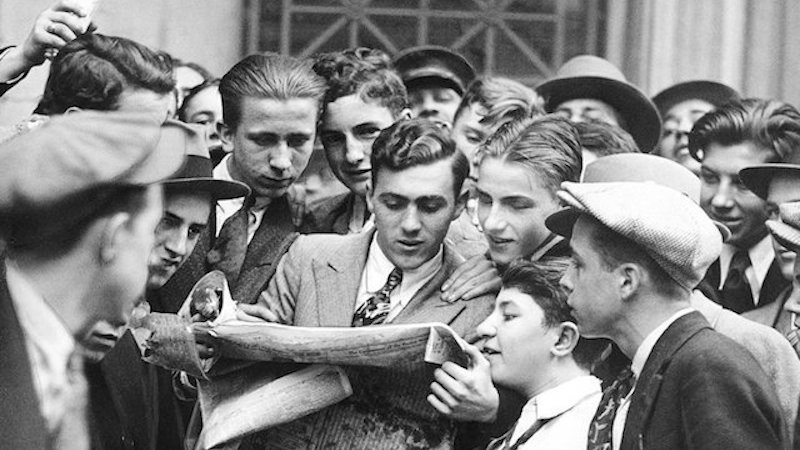
“Iweala is still interested in style, this time the kind of clarity we sometimes associate with Hemingway and mistakenly term simple … Niru’s homosexuality is very much the book’s subject, and the text is interested in dualities — Americans and Africans, white and black, gay and straight, devout and skeptic, the black immigrant and the black American — while always returning to the question of what his gayness says about who Niru is. Iweala writes with such ease about adolescents and adolescence that Speak No Evil could well be a young adult novel. At the same time he toys with other well-defined forms: the immigrant novel, the gay coming-of-age novel, the novel of being black in America. The resulting book is a hybrid of all these … In his smart exploration of generational conflict, of what it is to be a gay man, of the crisis of existence as a black man, Iweala is very much a realist. Perhaps the trouble is my own wish that reality itself were different.”
-Rumaan Alam on Uzodinma Iweala’s Speak No Evil (The New York Times Book Review)
*
“The nine stories in Anjali Sachdeva’s debut collection All the Names They Used for God aren’t your typical narratives. Each one provides a haiku-esque glimpse into the infinite mind of an individual while revealing how the seeming trivialities of life can reverberate with meaning … Her literary world is magnetic. The author has created perfect, complete micro-universes that lure the reader in to the dark depths of literature like siren song. And yet All the Names They Used for God shines in a way that leads characters and readers alike back out of the caves and frozen waters and into the warm, mysterious light.”
-Michael Valinsky on Anjali Sachdeva’s All the Names They Used for God (The Los Angeles Review of Books)
*
“I loathe the word ‘polished’ in the context of prose. It’s too clinical, implying that the work was dull before the author intentionally spruced it up. So I’d prefer to say that the sentences in these stories are living and seamless, as if Lazarin had run her hand over them until they became smooth and gleaming with the evidence of her touch. Yet they are not without viscera; sublimated rage fills the crevices between them. Lazarin’s style succeeds in part because the stakes for her characters are wide-ranging, because the implications of their actions ripple outward. In Back Talk, the theme of internalized misogyny is, to be quite blunt, terrifying … joins a growing canon of quietly realist stories that establish women’s experiences as worthy of literary attention. And not just women’s experiences: These stories also explore the exhausting, slow poison of masculine power, the grind of the patriarchy on even the most privileged of women, the subtle ways in which men have trained women to minimize themselves.”
-Carmen Maria Machado on Danielle Lazarin’s Back Talk (The New York Times Book Review)
*
“Entering a party after it has begun is disorienting. It is a testament to Urrea’s swift and lucid characterizations one does not want to leave this one … From the love of marriages to the love of siblings, The House of Broken Angels shows how that the only reason people fight over stories is they want to connect, to be loved. They need to be loved. Some are starved for love. In a world that reduces human complexity to phrases like anchor baby or in-migration, a novel like The House of Broken Angels is a radical act. It is a big, epic story about how hard it is to love with all of your heart, and all of your family — regardless of which side of the border they live on. After all, as this novel keenly reminds us, all of us will one day wind up on the other side.”
-John Freeman on Luis Alberto Urrea’s The House of Broken Angels (The Boston Globe)
*
“Buruma reports on Japan’s elegiac theatricality with a certain Dutch bluntness and the result is a book that is luscious and precise … It is a triumphal narrative of how determination, charm, readiness and linguistic fluency allowed the author to penetrate one of the world’s most insular societies, beginning as an enthusiast for the country’s avant-garde culture and ultimately becoming part of that culture … There is a touch of the erotic throughout his exegesis, but there is also a feeling of linguistic and cultural diligence, of the author’s effort to learn this new place … he treats his old self with a sort of avuncular geniality, as though to say, ‘Yes, we are foolish when we are young, but oh, how lovely it all was.’ ”
-Andrew Solomon on Ian Buruma’s A Tokyo Romance (The New York Times Book Review)

